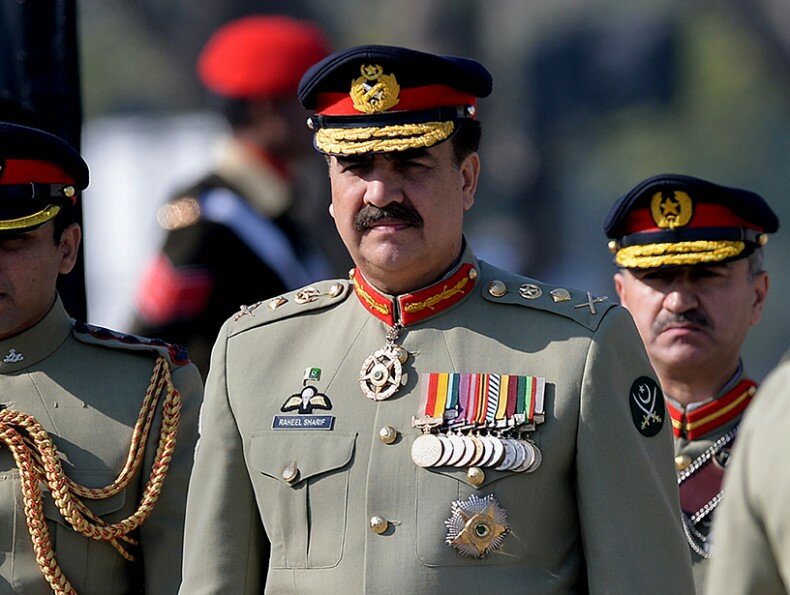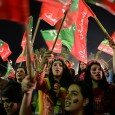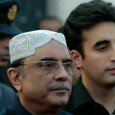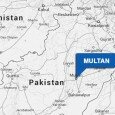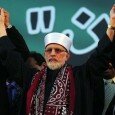By Shahzad Raza –
2015 may prove election year to steer the country out of obstinate political turmoil as the military is no mood to take over
Would corps commanders led by Chief of Army Staff impose Martial Law? No. Would they stop pulling strings from behind the curtain? Bigger No!
Since the commencement of Imran Khan’s so-called Azadi March and Tahirul Qadri’s self-professed Inqlab March, the role of armed forces is under constant debate. It prompted the military media wing to issue unexpected clarifications time and again. The generals explained they were neutral in the current political turmoil.
The word neutrality is unsuitable given the constitutional role of the armed forces. By no means, the military establishment is an equal or independent contender to either support any side or stay neutral.
The government of Pakistan Muslim League-Nawaz (PML-N) made a few major tactical errors that marred its relations with army in the very first year. First was the establishment of National Counter Terrorism Authority (NECTA).
The authority sought some sort of administrative control over all intelligence agencies including the Inter-Service Intelligence (ISI). Reining in the powerful ISI with a piece of legislation was such a bad idea that it blew on the face of whosoever conceived and tried to execute it at the first place.
That attempt to control the ISI was a slightly better version of what former interior minister Rehman Malik had planned at the behest of his bosses. Soon after coming to power in 2008, the Pakistan People’s Party government issued a notification declaring the ISI would be reporting to the interior minister. The move backfired and the government retracted the notification within no time.
The second blunder was more political than legal. The idea of trying former dictator General Pervez Musharraf under high treason charges was though fancy, but possessed greater risk of confrontation with army. The People’s Party that never initiated the trial in its five-year term encouraged the PML-N to do so. Prime Minister Nawaz Sharif fell in the trap.
Later, the backchannel negotiations reached an understanding that the former dictator would be allowed to leave the country after being charge-sheeted. That didn’t happen either. Not appearing in the courts anymore he remained under tight protection of serving commandos.
Why President Zardari despite all odds managed to complete his five-year term was because he learnt his lessons quickly. The areas such as relations with India and Afghanistan, operation in tribal areas, etc. which armed forces believed to be their exclusive domains were hardly encroached upon by the People’s Party government.
Prime Minister Nawaz Sharif’s peace overtures towards India were seen with skepticism. Also the peace talks with Taliban militants before the start of Operation Zarb-e-Azb were not really popular among all cadres of armed forces.
Then came the triggering event of Geo-ISI standoff. The government blatantly failed to defend the DG ISI against serious allegations. There were apprehensions that it was a deliberate attempt to first embarrass then remove the DG ISI. It also boomeranged.
When Mr Khan and Dr Qadri commenced their campaigns in the backdrop of above-mentioned events and Model Town incident, many speculated that the powerful quarters would settle score with the government. And they might have.
The question BH Liddell Hart asked after the World War II is still relevant: “Why Don’t We Learn from History?” Perhaps, George Bernard Shaw answered that question when he wrote: “We learn from history that we learn nothing from history.”
If not the politicians it seems the generals have learnt their lessons. The disgraceful fall of Gen Pervez Musharraf was an eye-opener. His successors well understood the direct intervention was not an option – at least for the time being.
The imposition of Article 245 and calling army to protect the Red Zone was a testimony that civil armed forces were incapable to handle the demonstrators. Later, the role of army was enhanced when the government requested it to “facilitate” a workable solution. Both Mr Khan and Dr Qadri held separate meetings with the army chief. What transpired in those meeting is difficult to fathom. While General Sharif could not convince both of them to end the protest, he ensured they resumed dialogue with the government.
The popularity graph and respect of armed forces spiked after the launch of operation Zarb-e-Azb. It took time to repair the image, badly damaged during the nine-year tenure of Gen Musharraf. Gen Kiyani also played his role to depoliticize the army.
However, then DG ISI Gen Ahmed Shuja Pasha was an interesting case to talk about. The PML-N was on record accusing him of backing PTI in 2013 general elections. Later, reports also emerged about a meeting between him and senior PTI leaders just before the so-called Azadi March launched on August 14, 2014.
The former officials of army are well respected and protected against the odds, but they cannot impose their whims and wishes on the incumbent hierarchy. It is hard to digest if General (retired) Pasha was really behind the conspiracy to oust PM Sharif with blessings of the current military establishment.
Secondly, the notion that ISI can act beyond the purview of the General Headquarters is erroneous. Call it a plan, scheme or conspiracy; nothing can be successful without the tutelage of the army chief.
It might have resorted to traditional intelligence tricks at operational level, but overthrowing or stabilizing governments was beyond its pay-cheque. Some historical examples are worth quoting here.
Gen Hamid Gel cobbled Islami Jamhoori Ittehad (IJI) to defeat the People’s Party in 1988 general elections. His successor Gen Asad Durrani distributed millions of rupees among anti-PPP politicians to hijack 1990 elections. And in 2002, Gen Ehtasham Zamir bribed and coerced politicians to support Gen Musharraf.
Both Gen Gul and Gen Durrani claimed they were obeying orders of then army chief Gen Aslam Baig. Gen Zamir also admitted he was acting upon what his boss Gen Pervez Musharraf asked him to do.
In her first tenure as prime minister late Benazir Bhutto appointed Gen (retired) Shamsur Rehman Kallu as GD ISI. He failed to perform because he was not enjoying confidence of the then army chief.
The words of army chief are like holy scripture in the army.
Primarily, it was the government’s inaction that created political stalemate. The PTI initially demanded investigation in four National Assembly constituencies. Now it has raised the bar asking for resignation of the prime minister until the investigation in, at least, 30 constituencies are completed.
Major political players have joined hands to protect Nawaz government against any misadventure. They were lucky to have an army chief who does not believe in playing politics or interfere in civilian matters.
While the chances of military intervention of any scale are remote and the PTI’s show is losing its glare, the crises are not yet over. It was the PML-N that also alleged rigging in 2013 general elections. What stopped it after coming to power to investigate the allegations it raised itself? Why is the government making it conditional to PTI’s departure from the Red Zone?
The investigations and process of electoral reforms should have been started with or without PTI agreeing to end the protest.
The people having access to some important drawing rooms in Islamabad say they would be surprised to see PML-N completing its five-year term.
Some snap elections may be a way out if the situation aggravates any further. The government cannot perform in a state of paralysis. And the prime minister would never want contest the elections when his popularity is touching an all time low after five or four years.
People cannot stop predicting that 2015 is the election year in Pakistan. And MQM chief Atlaf Hussain has already expressed his desire of having a technocrat government to “cleanse” the system before the electorates visit the polling stations once again.
Everyone makes mistakes. It is not important as long as they are not fatal. However, the habit of repeating old mistakes has plagued the ruling elite either political or dictatorial. Albert Einstein called them insane who did the same thing over and over again and expected different results.
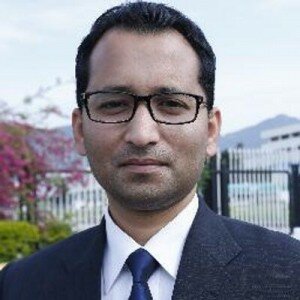 The writer is an Islamabad-based journalist. He hosts a talk show on Capital TV.He tweets @shahzadrez
The writer is an Islamabad-based journalist. He hosts a talk show on Capital TV.He tweets @shahzadrez





















































































